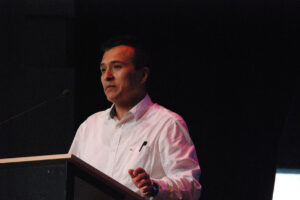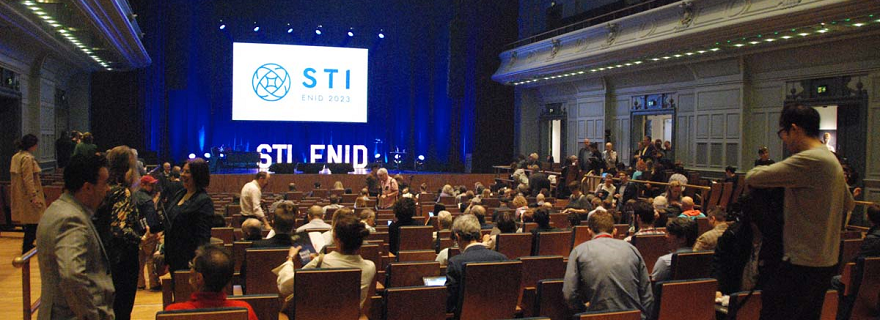New Horizons: A reflection on the Scientometrics Summer School and the STI 2023 Conference
In September 2023, the city of Leiden in the Netherlands was the venue for not just one, but two scientometrics-related events: the CWTS Scientometrics Summer School and the STI 2023 conference. Our author attended both and reflects on his experience.
Greetings from Peru, nestled in the heart of the Andes, where I find myself reflecting on two transformative events in my scientific journey: the CWTS Scientometrics Summer School (CS3) and the 27th International Conference on Science, Technology, and Innovation Indicators (STI 2023). As a bibliometrics enthusiast for the past two decades, this experience has been nothing short of a revelation—a journey that prompted me to question the very fabric of scientific evaluation and metrics.
Two decades ago, my foray into bibliometrics was marked by conventional survey field research. Fast forward ten years, and I realized the untapped potential of bibliometrics in advancing Library and Information Science (LIS). My maiden bibliometric study delved into the controversial realm of the h-index, assessing its utility in gauging the scientific output of Peruvian researchers. The journey took a pivotal turn in 2015 when I attended the “Measuring Science and Research Performance” course at CWTS in Leiden, a week that unraveled the limitations and detrimental consequences associated with relying on the h-index for critical decisions like research grants or promotions.
Why the focus on the h-index? Because, like the widely contested journal impact factor, it stands as one of the most popular yet frequently misused bibliometric indicators. Over almost a decade of dedicated bibliometric studies, I couldn't ignore the grim reality in many South American countries—bibliometric reports often perpetuate the status quo, hindering scientific progress. Indicators, meant to guide and inform, had become perverse incentives. Researchers, chasing elusive citations, prioritized studies that fit into pre-existing frameworks rather than addressing pressing regional and local needs.
Even workshops advocating for open science, while championing transparency and accessibility, often fell short. Discussions on alternative indicators typically revolve around metrics tied to downloads or citations from open information sources. While open-access publishing dominates the discourse on open science practices, few consider the potential of data sharing and code transparency: for example, sharing bibliographic datasets or the R/Stata codes essential for transparent data analysis.

Eight years after my inaugural visit to Leiden, I had the privilege of returning to participate in the CS3 and the STI 2023. These events were crucibles of intellectual exchange, where I encountered a wealth of perspectives that ignited new possibilities for my own research journey. The incorporation of insights from the sociology of science and science and technology studies (STS) offered a refreshing lens, challenging us to move beyond mere numbers and delve into the social and cultural contexts that shape scientific knowledge production. Exploring diverse information sources, beyond the confines of established databases, promised a more nuanced understanding of scientific impact, particularly in regions often marginalized by traditional bibliometric approaches.
But most importantly, the shared experiences and diverse perspectives of colleagues from across the globe truly resonated. The STI 2023 conference brought together Global North and South voices, bridging the gap between established research powerhouses and emerging scientific ecosystems. Through open dialogue and critical reflection, we began to dismantle the monolithic assumptions that often underpin bibliometric analysis. We acknowledged the distinct dynamics of scientific production in different regions and the varying priorities and challenges faced by researchers in high-income and low-middle-income countries.
This newfound awareness, I believe, is the key to unlocking the true potential of bibliometrics. By embracing diversity, incorporating critical perspectives, and forging connections across borders, we can transform this field from a passive observer into an active agent for positive change. We can use bibliometrics not to reinforce existing inequalities but to guide us toward a more inclusive and equitable scientific landscape, one where research serves the needs of all, regardless of their geographic location or economic standing.
In bidding farewell to the Scientometrics Summer School and the STI 2023 Conference, I can't help but see it as not just an end but a promising new beginning. Armed with enriched perspectives, I embark on the next chapter of my bibliometric journey, eager to implement the lessons learned in contributing to a more equitable and impactful scientific landscape.
Header and in-text image: Henri de Winter/CWTS



0 Comments
Add a comment